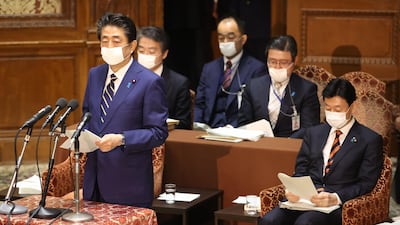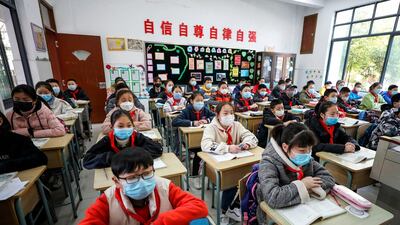The EU’s chief scientist, Mauro Ferrari, has fuelled doubts over Brussels handling of the coronavirus pandemic, by abruptly resigning just three months into the job.
Mr Ferrari, the president of the European Research Council (ERC), submitted his resignation on April 7 having begun his four-year term at the helm of the EU’s foremost scientific body at the start of the year.
The ERC has issued a response to the Italian-American scientist's statement saying it "at best is economical with the truth".
The council accused Mr Ferrari of failing to make time for his role as president and failing to understand the body's mission.
"During his three-month term in office, Professor Ferrari displayed a complete lack of appreciation for the raison-d’être of the ERC to support excellent frontier science, designed and implemented by the best researchers in Europe," the council said.
Nevertheless, Mr Ferrari's public criticism of Brussels is just latest in a series of body blows to the 27-member group which has found itself unravelled by the coronavirus crisis.
"I arrived at the ERC a fervent supporter of the EU [but] the Covid-19 crisis completely changed my views, though the ideals of international collaboration I continue to support with enthusiasm," he told the Financial Times.
Mr Ferrari has said he was twice knocked back in his attempts to set up a special programme to fight Covid-19.
The coronavirus crisis, which has hit Europe harder than anywhere else in the world, has exposed chronic dysfunction at the heart of the EU. The opaque and inflexible bureaucracy in Brussels described by Mr Ferrari is just one of a number of existential problems.
The divergence between northern and southern EU members has been brought into stark relief as they wrangle over how to deal with the economic fallout from the Covid-19 crisis.
A 16-hour meeting of Eurozone finance ministers on Tuesday failed to resolve the standoff between nations like Spain and Italy which have called for a grand gesture from Brussels to restore faith in the EU.
More fiscally conservative nations like Germany and the Netherlands have, however, resisted. Polls in the northern nations have shown repeatedly that voters are unwilling to foot the bill for perceived southern profligacy.
It appears now that Italy and the Netherlands in particular are at loggerheads over whether conditions should be attached to providing funds through the European Stability Mechanism. Talks are set to resume on Thursday but the EU has been kicking the can down the road over the continent-wide bailout plan for weeks.
The Spanish government has highlighted the lack of trust that will result from half measures.
“We need the help of other countries, and that’s why the European Community was originally formed, at that time after a physical war, now we are fighting a war against an epidemic,” spokeswoman Maria Jesus Montero said on Wednesday.
In Italy, the country’s powerful political right has already used the coronavirus crisis as a platform for its anti-EU message.
Former deputy prime minister Matteo Salvini, the head of Italy’s far-right Lega party, said yesterday he did not have faith in EU loans wouldn’t beg for money from “loan sharks” in Brussels or Berlin.
Brussels' slow response to the coronavirus crisis in Italy has left a particularly bitter taste with Rome turning to a constellation of other nations such as Cuba, Albania, China and Russia in the face of its public health emergency.
On Tuesday the EU deployed a team of doctors and nurses from Romania and Norway through the its Civil Protection Mechanism to Milan and Bergamo to help Italian medical staff. Before the EU’s offers, France delivered two million face masks to Italy and Germany sent two dozen ventilators but the response was preceded by Paris and Berlin placing limits on ventilator exports as the crisis took hold in Italy.
In other areas, the EU has looked embarrassingly impotent while trying to make its mark on the crisis. The WHO has repeatedly warned about the spread of the coronavirus on the continent.
The European Commission was forced into a U-turn by national governments over plans to present a strategy for ending the lockdowns. European capitals complained the initiative sent completely the wrong message just at the moment they were trying to convince millions of citizens to stay at home.

















